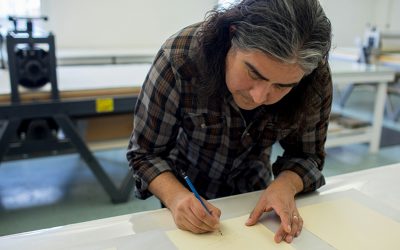Flutist Camilla Hoitenga will be in town and on campus from Thursday, October 22nd to Monday, the 26th. She will be working with the flute students, composition students, coach the NMNM flutist on a piece by Saariaho, and work with composition professor Karola Obermueller on her flute solo piece for a studio recording for the upcoming WERGO portrait CD.
Camilla Hoitenga is at home on stages all over the world, performing in venues as diverse as Carnegie Hall in New York, the Royal Festival Hall in London, the Kremlin in Moskow and the Forbidden City in Beijing, China, playing not only the C-flute but also the alto, bass, and piccolo flute and other varieties of her instrument.
In addition to her intensive collaborations with Saariaho, Köszeghy and Stockhausen, she has had pieces dedicated to her by wide range of composers, including Donnacha Dennehy, Christopher Fox, Miyuki Ito, Anne LeBaron, Arvydas Malcys, Michele Rusconi, Oliver Schneller, Helena Tulve, Jovanka Trbojevic, Andreas Wagner, and Bryan Wolf.
Jacobsen signs pre-completion contract for “The Creative Ethnographer’s Notebook”
Jacobsen signs pre-completion contract for "The Creative Ethnographer's Notebook" (co-authored with Melisa Cahnmann-Taylor) a book for artists, ethnographers and qualitative researchers. How and when do anthropologists, educators, sociologists and other social...
Pulitzer winning alumnus Raven Chacon to debut new composition, perform
Pulitzer winning alumnus Raven Chacon to debut new composition, perform Tickets available for performances in Santa Fe, Albuquerque By Mary Beth King August 11, 2022 Pulitzer Prize winning Diné composer and sound artist Raven Chacon, who earned his Bachelor of Arts...
The American Prize in Vocal Performance—Women in Art Song and Oratorio, 2022 Winner
The American Prize National Nonprofit Competitions in the Performing Arts, David (Volosin) Katz, founder and chief judge, is honored to announce the winners, runners-up, and honorable mentions of The American Prize in Vocal Performance—women in art song and oratorio,...



